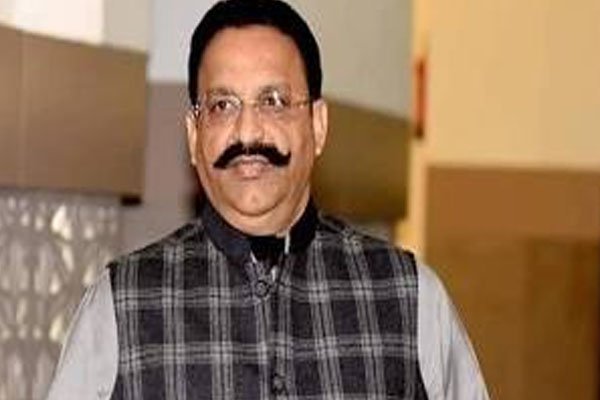The recent demise of former Uttar Pradesh MLA Mukhtar Ansari has sparked a flurry of allegations and expressions of concern from various political leaders, with many echoing the claims made by Ansari’s family about his alleged poisoning while in jail. Mukhtar Ansari, a controversial figure known for his criminal background and political affiliations, passed away on Thursday, prompting reactions from leaders across the political spectrum demanding an investigation.
RJD leader Tejashwi Yadav took to social media to express his concerns over the circumstances leading to Ansari’s death and called for an investigation into the matter. In a post on X (formerly Twitter), Yadav emphasized the need for constitutional institutions to take suo motu cognizance of such incidents, referring to Ansari’s earlier complaints about being poisoned in jail. He highlighted the apparent lack of attention given to Ansari’s claims and called for a thorough investigation into the matter.
Similarly, AIMIM chief Asaduddin Owaisi also voiced his suspicions about Ansari’s death and expressed condolences to his family. Owaisi underscored Ansari’s earlier allegations against the administration regarding poisoning and criticized the government for not taking adequate action to address his concerns. He described Ansari’s death as regrettable and condemned the lack of attention given to his health issues while in custody.
The controversy surrounding Ansari’s death stemmed from allegations made by him and his family about the quality of food served to him in prison. Ansari had purportedly written a letter to jail authorities claiming that the food contained poisonous substances, resulting in severe pain and discomfort. Despite his complaints, Ansari’s health deteriorated, ultimately leading to his demise due to cardiac arrest after being admitted to a hospital in Uttar Pradesh’s Banda district.
The dissemination of Ansari’s letter to the media further fueled speculation and raised questions about the circumstances surrounding his death. Ansari’s lawyers had previously raised concerns about his well-being and applied to the Barabanki special court, alleging that he was being slowly poisoned through the food served to him in prison. These allegations, coupled with Ansari’s sudden demise, have triggered calls for a thorough investigation and accountability from various quarters.
Former Bihar MP Pappu Yadav condemned Ansari’s death as an “institutional murder” and called on judicial bodies to intervene in the matter. Yadav characterized Ansari’s demise as a grave injustice and a stain on the country’s constitutional system. He emphasized the need for accountability and urged authorities to address the underlying issues contributing to such incidents.
Mukhtar Ansari’s death has reignited debates about the state of India’s criminal justice system and the treatment of prisoners, particularly those with political backgrounds. Ansari, a five-time MLA from eastern UP’s Mau, was a controversial figure with a long history of criminal involvement and political influence. Despite his legal troubles and criminal cases, Ansari remained a prominent figure in Uttar Pradesh politics, contesting elections and representing various constituencies over the years.
The circumstances surrounding Mukhtar Ansari’s death underscore the need for greater transparency and accountability in the treatment of prisoners and the functioning of the criminal justice system. The allegations of poisoning and the subsequent demise of Ansari raise serious questions about the adequacy of safeguards and oversight mechanisms in place to protect the rights and well-being of individuals in custody.
As the investigation into Mukhtar Ansari’s death unfolds, there is a pressing need for authorities to address the concerns raised by his family and political leaders. Ensuring justice and accountability in this case is essential not only for Ansari’s family but also for upholding the principles of fairness and rule of law in the country. The outcome of the investigation will be closely watched, and any lapses or negligence in addressing Ansari’s health issues must be addressed promptly to prevent similar incidents in the future.













